Business
U.S. ‘Losing Faith’ in Canada’s Ability to Combat Industrial-Scale Fentanyl
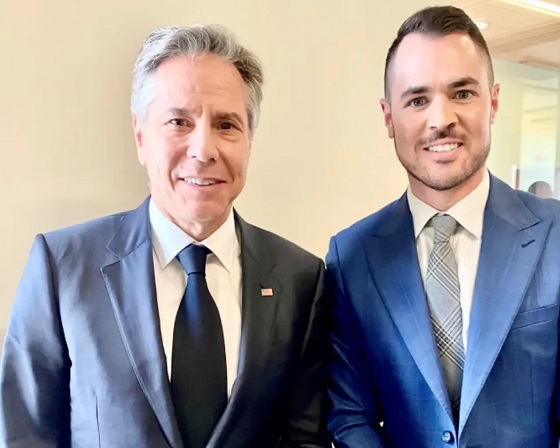
BC Mayor Warns of Asian Organized Crime’s Surprising Access to Canada’s Political Class, Echoing US Agency Concerns
In a high-level meeting in 2023—one participant representing the head of state of the world’s most powerful nation, the other a popular small-town mayor in British Columbia—candid warnings emerged about Canada’s capacity to confront the industrial-scale production of fentanyl. Mayor Brad West, a longstanding critic of transnational drug networks in his province, recalls Secretary of State Antony Blinken stressing that Washington believes Beijing is effectively weaponizing fentanyl against North Americans—and that Canada stands out as a worrisome weak link in the global supply chain.
On Tuesday, Prime Minister Justin Trudeau’s government moved to address growing U.S. alarm by appointing former RCMP deputy commissioner Kevin Brosseau as Canada’s new “fentanyl czar.” Announced as part of an agreement to forestall potential American tariffs in a tense trade dispute, the position mandates “accelerating Canada’s ongoing work to detect, disrupt, and dismantle the fentanyl trade,” according to the Prime Minister’s Office. Brosseau, who most recently served as deputy national security and intelligence adviser to Trudeau, will work closely with U.S. agencies to tackle a crisis that has claimed tens of thousands of lives across North America. Still, questions remain about whether he has the standing in Washington—and the authority in Ottawa—to enact meaningful reforms.
West, reflecting on his encounter with Blinken, doubts that incremental measures will suffice. He argues that only bold legislative change, coupled with a willingness to challenge entrenched legal barriers, can dispel the U.S. government’s unease over Canada’s approach. “Secretary Blinken specifically noted the lack of a RICO-style law in Canada,” West said. “He talked about how, in the United States, that law had been used to take down large portions of the mafia. Then he looked at us—one of America’s closest allies—and saw a very concerning weak link.”
According to West, Blinken pointed to China’s role in funneling precursor chemicals into fentanyl labs. He warned that China’s government, if inclined, could stem the flow but has little interest in doing so. “He was incredibly candid and very serious about the threat fentanyl poses to North America,” West recalled. “He confirmed the connection between the Chinese Communist Party, the triads, and the Mexican cartels, telling me these groups are working together—and it’s Canada where they’re finding a safe operating base.”
West says American frustration revolves around high-profile law enforcement stumbles in Canada, notably the E-Pirate investigation into Silver International, an alleged underground bank in Richmond, B.C., believed to have laundered more than a billion dollars a year for global syndicates. Touted as a signal that Canadian authorities could clamp down on transnational money laundering, the case nevertheless collapsed with no convictions. “He expressed genuine dismay that we haven’t secured meaningful convictions,” West said, paraphrasing Blinken. “When our most prominent laundering case ends with zero prison time, you can see why the Americans are alarmed.”
Blinken also conveyed to West that U.S. agencies have grown hesitant to share certain intelligence with their Canadian counterparts.
“He told me that U.S. intelligence and law enforcement are withholding some evidence because they don’t believe we’ll act on it,” West explained. “They’ve lost confidence.”
West added that in ongoing communications, he has learned American officials are shocked that major figures in Asian organized crime “seem to have so much access to our political class. They’re basically saying, ‘What’s going on in Canada?’”
A major concern, according to West, is how known criminals manage to appear at political events or fundraisers with little oversight.
“It’s not necessarily that politicians are complicit, but our political structures have weak guardrails,” West said. “The Americans see pictures of transnational criminals mingling at official gatherings and find it baffling.”
West insists that Canada must enact a legal framework akin to the U.S. Racketeer Influenced and Corrupt Organizations (RICO) Act to truly “detect, disrupt, and dismantle” the fentanyl trade. “We don’t have anything like it, and until we do, I worry the new czar’s hands could be tied by the legal status quo,” West said. “Ottawa might resist, but we need it. We should have enacted it yesterday.”
He also decries what he calls “egregious rulings” that free major traffickers or launderers on technicalities. West cites a prominent British Columbia case in which a suspect found with more than 27,000 fentanyl pills was released because a police dog had not fully performed its required sitting motion before searching a vehicle. “When a decision like that happens, we’re letting criminals exploit minutiae while countless people die,” he said. “We need a government that has the courage to challenge those judicial outcomes.”
In pursuit of that goal, West is willing to suggest the targeted use of the notwithstanding clause, a rare constitutional tool allowing governments to override parts of the Charter of Rights and Freedoms for up to five years. Typically employed in language or education disputes, it has scarcely been used in criminal proceedings. “When the Charter is being weaponized by sophisticated organizations, the government should consider all tools,” he insisted. “The right of Canadians not to be killed by a drug of this scale ought to supersede a procedural glitch.”
The severity of the fentanyl crisis in British Columbia, which has seen the majority of Canada’s overdose deaths, offers a striking backdrop for West’s urgings. He emphasizes that the torrent of precursor chemicals from China has supercharged local labs, embedding crime syndicates in global narcotics pipelines. Profits from these vast operations, in his words, flow through real estate, casinos, and underground banks with little interference.
Whether Ottawa has the political will to implement measures as sweeping as a RICO-style statute or invoke the notwithstanding clause remains uncertain. Both actions would require confronting powerful interests and explaining why existing laws have failed to secure convictions against top offenders. But West argues that mounting American impatience has changed the equation. “This is no longer just a Canadian domestic issue,” he said. “Secretary Blinken made it clear that the Biden administration sees fentanyl as an existential threat. They’re building a global coalition and need Canada fully on board. If we don’t show real progress, the U.S. will protect itself by any means—tariffs or otherwise.”
“People have been calling for something like RICO in Canada for years,” West added. “Silver International was the textbook illustration of why we need it. We had it all—massive money laundering, triads with direct links to Mexican cartels tied to fentanyl labs—and it collapsed because our system couldn’t handle a case of that complexity. That can’t keep happening, or else we’ll remain the hub of a deadly trade.”
West also revealed he would have accepted the fentanyl czar position himself if asked. “I love being mayor, but this is one of the biggest challenges facing our country,” he said. “I’d pour my heart into it. It demands relentless follow-through: legislation, expanded police powers, educating the public, and yes, taking on the courts if necessary.”
Whether Brosseau wields enough clout remains to be seen. West hopes the appointment signals a turning point from what he calls “a fragmented, complacent approach” to one that confronts the crisis on all fronts. “I’ve seen too many half-measures,” he said. “But maybe this time it’ll be different. The Americans have made their position crystal clear, and we need to demonstrate that we can protect ourselves. Otherwise, we fail both our citizens and our closest ally.”
West still recalls Blinken’s direct plea: “He basically said, ‘We need a partner we can trust, one that can disrupt these networks and secure convictions,’” West noted. “If Canada doesn’t step up, I believe the Americans will respond in ways that damage our relationship—and meanwhile, we’ll continue losing people to a drug that’s tearing families apart. We just can’t let that happen.”
The Bureau is a reader-supported publication.
To receive new posts and support my work, consider becoming a free or paid subscriber.
Automotive
$15 Billion, Zero Assurances: Stellantis Abandons Brampton as Trudeau-Era Green Deal Collapses

Carney issues memos, Joly writes letters, and Freeland hides abroad—while 3,000 Canadian workers pay the price for a green gamble built on denial and delusion.
Stellantis has announced they’re leaving Brampton. That’s it. End of story.
Three thousand workers. Gone. A manufacturing base gutted. A city thrown into economic chaos. And a federal government left holding a $15 billion bag it handed over like a drunk tourist at a rigged poker table.
The Jeep Compass—the very vehicle they promised would anchor Ontario’s role in the so-called “EV transition”—will no longer be built in Canada. Production is moving to Belvidere, Illinois. The same company that cashed billions of your tax dollars under the banner of “green jobs” and “economic transformation” has slammed the door and walked out. And no, this isn’t a surprise. This was baked into the cake from day one.
Let’s rewind.
In April 2023, under Justin Trudeau’s government, Chrystia Freeland—then Finance Minister—and François-Philippe Champagne, the Industry Minister, announced what they called a “historic” agreement: a multi-billion-dollar subsidy package to Stellantis and LG Energy Solution to build an EV battery plant in Windsor, Ontario.
It was sold as a turning point. The future. A Green Revolution. Thousands of jobs. A new industrial strategy for Canada. But in reality? It was a Hail Mary pass by a government that had already crippled Canada’s energy sector and needed a shiny new narrative heading into an election cycle.
And here’s what they didn’t tell you: the deal had no enforceable commitment to keep auto production in Brampton. There were performance-based incentives—yes—but only for the battery plant. Not for the Brampton assembly line. Not for the existing workforce. And certainly not for ensuring the long-term health of Canada’s domestic auto industry.
They tied this country’s future to a globalist fantasy. A fantasy that assumed the United States would remain under the control of climate-obsessed technocrats like Joe Biden. A fantasy that required a compliant America pushing carbon neutrality, electric vehicle mandates, and billions in matching subsidies for green infrastructure.
But in November 2024, Americans said no.
Donald Trump was elected president. And just as he promised, he tore Biden’s green agenda to shreds. He pulled out of the Paris Climate Accord—again. He dismantled the EV mandates. He unleashed American oil and gas. But he didn’t stop there. Trump imposed a sweeping America First manufacturing policy, pairing 25% tariffs on imported goods with aggressive incentives to bring factories, jobs, and supply chains back onto U.S. soil.
And it’s working—because the United States doesn’t strangle its industries with the kind of red tape, carbon taxes, and bureaucratic self-sabotage that Canada does. Energy is cheaper, regulations are lighter, and capital actually wants to stay. So when companies like Stellantis look at the map, it’s no contest.
Now Stellantis, like any rational corporation, is doing what any business does under pressure: protecting its bottom line. They’re shifting production to a country that rewards investment instead of punishing it, a country that actually wants to build things again. That’s Trump’s America—competitive, unapologetic, and open for business—while Canada clings to a collapsing green fantasy and wonders why the factories keep leaving.

So what does Canada do in response? Our Prime Minister, Mark Carney, issues a carefully scripted memo on social media—not action, not legislation, not binding commitments—just a memo—reassuring workers he “stands by” the auto sector while offering vague promises about future budgets and long-term resilience. Lets be clear Carney isn’t saving jobs; he’s eulogizing them. Those 3,000 positions aren’t “paused” or “in transition.” They’re gone. Finished. Packed up and heading south. No memo, no committee, no press conference is bringing them back.
Chrystia Freeland, the architect of this mess, isn’t around to answer for any of it. She’s been conveniently shipped off to Kyiv, far from the consequences of the green boondoggles she helped engineer

And Industry Minister Mélanie Joly? She’s doing what this government does best: issuing strongly worded letters, drafted by lawyers, polished by comms teams, and lobbed into the void like they carry any real weight. She’s threatening legal action against Stellantis—vague, undefined, and almost certainly toothless. As if a global automaker backed by EU investors and billions in international capital is going to flinch because Ottawa wrote them a nasty note.
But let’s be absolutely clear here—what legal action? What’s the actual mechanism Ottawa is threatening to use? This wasn’t a blank cheque handed to Stellantis. According to public records, The $15 billion deal was built around performance-based incentives, structured to release funding only if Stellantis delivered on agreed milestones: production output, sales volume, battery module manufacturing at the Windsor facility. If they didn’t meet those metrics, they wouldn’t get paid. That’s the public line. That’s the defense.
Opposition Calls for Accountability
Conservatives, led by Raquel Dancho, are demanding real accountability, a formal investigation, a full reopening of the House of Commons Standing Committee on Industry and Technology (INDU) under Standing Order 106(4).
This isn’t a symbolic gesture. It’s a procedural weapon. When invoked, 106(4) forces Parliament to reconvene the committee, even if the government doesn’t want to, and compels ministers and officials to testify under oath. That’s what Dancho and her colleagues, Ted Falk, Michael Guglielmin, and Kathy Borrelli, have done. Their letter, dated October 15, 2025, demands that INDU immediately examine the Stellantis debacle — the $15 billion taxpayer-funded subsidy that failed to secure a single guarantee for Canadian auto jobs.
The letter is explicit. It references Stellantis’ decision to move Jeep Compass production from Brampton, Ontario to Illinois, a move that puts 3,000 Canadian jobs at risk despite the billions handed to the automaker under the Trudeau-Freeland-Carney green industrial strategy. It details how the federal and Ontario governments offered over $15 billion to secure battery plant investments, but with no enforceable job protection clauses to safeguard workers at Stellantis’s Canadian operations.
It doesn’t stop there. The letter points directly at Mark Carney, accusing him of breaking his promise to “put elbows up” and negotiate a fair deal with President Trump. It notes that Carney’s October 7th White House visit yielded nothing but new U.S. tariffs on Canadian autos and lumber, while Stellantis and GM expanded their operations south of the border. “Mark Carney broke his promise,” the MPs write, “and his weakness abroad is costing Canadian jobs at home.”

Dancho’s accompanying tweet lays out the message clearly and without spin:
“Stellantis received up to $15 billion in taxpayer subsidies—with no assurances of job retention in Canada. Yesterday, Stellantis announced that they were moving production to the U.S. and investing $13 billion in their economy. Conservatives are calling to reconvene the Industry Committee to study this decision and learn how such a failure happened. While the Liberals pat themselves on the back for announcements and rhetoric, auto workers are being told that their jobs are on the chopping block. They deserve clarity.”
Dancho’s move changes the game. With the NDP gutted and no longer shielding the government in committee, the opposition finally has the numbers and the mandate to dig. Ministers like Mélanie Joly and François-Philippe Champagne will now have to answer, under oath, for the deals they signed. Officials from Innovation, Finance, and Employment Canada will be subpoenaed to explain what oversight, if any, was built into the Stellantis agreements.
Final thoughts
I wrote about this when the deal was signed, and I wasn’t guessing. I said it plainly: this $15 billion green industrial experiment was a reckless, ideological bet that depended entirely on Donald Trump not winning the presidency.
Now here we are. Trump’s back in office — and he’s gone even further than I predicted. He didn’t just rip up Biden’s climate agenda; he imposed broad “America First” tariffs across the board to drag manufacturing back onto U.S. soil. Twenty-five percent duties on Canadian and Mexican goods, combined with tax breaks and energy policies that make it cheaper to produce in America than anywhere else. That single move detonated the fragile logic behind Trudeau and Freeland’s so-called industrial strategy.
So Stellantis did what any corporation would do when faced with a government that punishes production and a neighbour that rewards it: it packed up and left. The company took billions in Canadian subsidies, thanked Ottawa for the free money, then announced a $13 billion expansion in the United States—under Trump’s protectionist umbrella.
Let’s be clear: when I bet, I bet smart. I hedge. I read the table. I make damn sure I’m holding something real. These people—the Liberal government—went all in with a high card and a hollow narrative, betting your tax dollars on a political fantasy. They thought they could bluff their way into an industrial renaissance while ignoring the shift happening just across the border.
And you want final thoughts? Here they are: I am absolutely sickened by the people responsible for this disaster and you know exactly who I mean. Chrystia Freeland, who vanished from Cabinet and failed up into some made up ambassador’s post, her entire political career a string of bailouts, virtue signals, and globalist pageantry. And François-Philippe Champagne, the man who handed out our tax dollars like Monopoly money and couldn’t negotiate a cup of coffee without being outplayed.
They won an election based on this. Based on lies. Based on phony climate promises and fake job projections and polls manipulated by the same Mainstream Media that cashes federal subsidy cheques while calling themselves journalists. Do you think they’re going to hold Champagne accountable? Do you think they’re going to track Freeland down between photo ops in Kyiv and ask how 3,000 Canadian families are supposed to pay their mortgage now?
Of course not. They’re all on the same payroll.
Well guess what, I’m not. I don’t take their money. I don’t need their approval. And I am not shutting up. Not now. Not until that committee gets answers. Not until those ministers are dragged before Parliament. And not until Chrystia Freeland and François-Philippe Champagne are fired for the betrayal they’ve inflicted on Canadian workers.
This isn’t over. Not by a long shot. I’m going to bang this drum until it splits. And every time they try to bury this story, I’ll be there digging it back up. You’ve been lied to. Robbed. Betrayed. And someone is finally going to answer for it.
So stay tuned. Stay loud. And for God’s sake, stay angry.
Business
Ford’s Whisky War

 Marco Navarro-Génie
Marco Navarro-Génie
One could do a whole series of opinion and research pieces on how poorly educated Canadian politicians are about economic and trade principles. Below is my latest on the topic, focusing on Doug Ford’s latest philistine tantrum. My next piece will be on Wab Kinew. Writing on their lack of discipline and poor habits can be a cottage industry for commentators.
Haultain’s Substack is a reader-supported publication.
To receive new posts and support our work, please consider becoming a free or paid subscriber.
Try it out.
When a politician pours whisky on the ground, it usually means she has run out of ideas.
A few weeks ago, in September, Ontario Premier Doug Ford staged a protest worthy of a talk-show segment. Before a union crowd in Brampton, he emptied a bottle of Crown Royal onto the stage and vowed its maker, Diageo, would “pay dearly.” He threatened to pull Crown Royal (and several ither brands) from LCBO shelves, declaring Ontario would use its market power to punish the distiller for closing its Amherstburg bottling plant.
It was a vivid scene, part theatre, part tantrum, and entirely revealing.
Diageo is one of the world’s largest producers of spirits and beer, headquartered in London, England. It owns more than two hundred brands, including Johnnie Walker, Guinness, Tanqueray, and Baileys, and sells in over 180 countries. The company was formed in 1997 through the merger of Guinness and Grand Metropolitan, and it inherited Crown Royal from the old Seagram portfolio. Diageo’s Canadian operations remain significant, with the Gimli, Manitoba distillery producing every drop of Crown Royal whisky sold worldwide. It’s a Canadian product.
Diageo’s decision was not an act of treachery but arithmetic. The company plans to close its Amherstburg facility by 2026, shifting bottling to Quebec and parts of the United States. Roughly two hundred jobs will vanish. For a town of twenty-three thousand, that is a deep cut. Yet Ford’s reaction transforms an industrial decision into a political drama. He recasts an economic adjustment as a moral betrayal, as if loyalty to Ontario were a debt every business must pay in perpetuity.
That sentiment plays well at partisan rallies. But in practice, it blurs the boundary between government and market. When politicians confuse the two, policy becomes a tool of temper rather than governance.
Once a premier signals that he will use public institutions like the LCBO as weapons, investors take note. And they should. They infer that Ontario’s business climate can change with the premier’s mood. Capital, unlike politicians, is dispassionate. It goes where rules are predictable and contracts honoured, not where leaders lecture firms for disobedience.
Markets, as Adam Smith observed, are a network of trust. Replace trust with coercion or shaming, and investment flows away as surely as whisky poured on the pavement.
Ford casts himself as the friend of “working people.” Yet his fury threatens workers far from Ontario. The whisky he attacked onstage is distilled and aged in Gimli, Manitoba, from prairie grain and Canadian labour. Eighty people work at that distillery. Thousands of farmers supply its rye and corn. If Diageo decides Canada has become a political hazard, those Manitoban jobs will be among the first casualties. A tantrum in Brampton can send a chill all the way to Lake Winnipeg.
This is the irony of populist economic nationalism: in defending a few hundred local jobs, it imperils thousands more across the whole federation. It’s thoughtless.
Ford’s rhetoric also clashes with his own record. When electric-vehicle battery ventures trimmed their job projections despite billions in subsidies, the premier offered understanding, not outrage. When Brookfield shifted parts of its business operations abroad, there was no rally, no public denunciation, no bottle hitting the floor. Evidently, corporate disloyalty is tolerable, until it involves whisky.
Such inconsistency is not a principle but an impulse. Governments that choose favourites create uncertainty for everyone. When rules bend to political sentiment, each firm wonders whether it will be next in line for punishment. And so the province that once competed for investment becomes a place investors compete to avoid.
If Ford truly wished to defend Ontario’s workers, he would ask why bottling in his province became uneconomic in the first place. The answer is not a mystery. Ontario carries high energy costs, heavy regulation, and steep land prices. Every company weighs those burdens. Threatening one firm for noticing them will not persuade others to stay.
Political anger cannot repeal common sense arithmetic.
The irony deepens because Crown Royal remains Canadian in every essential sense. Its grains, water, and labour are Canadian. Its distilling craft and heritage are Canadian. Ownership by a British firm changes the shareholder, not the spirit. Punishing that success because it offends provincial pride reduces patriotism to parochialism. The brand’s global reach is a quiet advertisement for Canadian skill, and it is an achievement to be respected, not vandalized.
The premier’s defenders will say he is merely standing up for Ontario workers. But bluster is not courage. Proper defence of working people lies in creating the conditions that let enterprise and local ingenuity flourish. When government swaps policy for theatre, it only feeds resentment and starves opportunity.
Economic freedom depends on restraint. Governments must regulate and tax modestly, but they must also know when not to act. Every unnecessary intervention signals risk. The LCBO should be a neutral marketplace, not a political cudgel. Once it becomes a stage for senseless retribution, the line between free commerce and state coercion dissolves.
Ontario’s grievance is understandable; its method is reckless. A government may lament job losses, negotiate incentives, or compete for reinvestment. It may not commandeer a marketplace to punish a decision it dislikes. In a constitutional order, power is exercised through law, not vendetta.
Amherstburg deserves sympathy. No question. Two hundred jobs lost in a small town is no abstraction. Yet the premier’s faux fury will not restore them. Instead, it risks ensuring that the next investor leaves quietly rather than risk the wrath of the premier and public humiliation. Markets remember humiliation longer than speeches.
Crown Royal will survive this episode. The whisky made in Gimli will continue to be sold worldwide, enjoyed by people who have never heard, and will likely never hear, of Ontario’s premier. But the image of a provincial leader pouring it out onstage will endure too. It is an emblem of how quickly cheap populism can trade reason for spectacle.
Ontario must decide what kind of province it wishes to be: a jurisdiction that welcomes enterprise, or one that punishes it when it moves. If every business is expected to pledge fealty to the premier’s emotions, the province will learn how swiftly loyalty evaporates.
When politics meddles in markets, both lose dignity. The government becomes a performer; the market, its prop. The result is neither freedom nor prosperity, only theatre.
Doug can pour out all whisky in Ontario, if he likes. The rest of the world will raise a glass to markets that keep their cool.
Haultain’s Substack is a reader-supported publication.
To receive new posts and support our work, please consider becoming a free or paid subscriber.
Try it out.
-

 Red Deer1 day ago
Red Deer1 day agoThe City of Red Deer’s Financial Troubles: Here Are The Candidates I Am Voting For And Why.
-

 Business13 hours ago
Business13 hours agoUN, Gates Foundation push for digital ID across 50 nations by 2028
-

 COVID-1914 hours ago
COVID-1914 hours agoThe Trials of Liberty: What the Truckers Taught Canada About Power and Protest
-
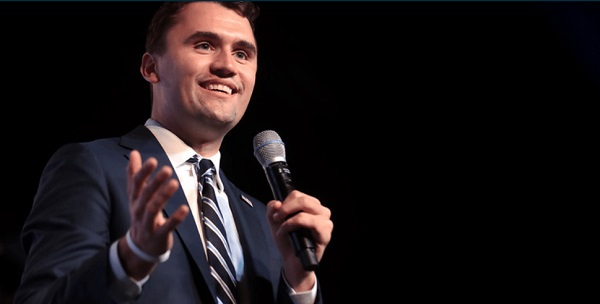
 C2C Journal13 hours ago
C2C Journal13 hours agoCharlie Kirk and the Fragility of Civic Peace
-

 Business2 days ago
Business2 days agoCutting Red Tape Could Help Solve Canada’s Doctor Crisis
-
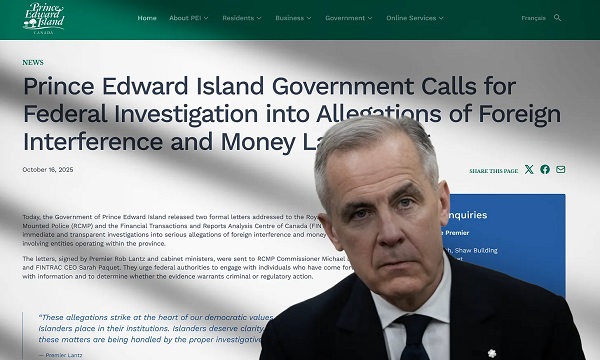
 espionage1 day ago
espionage1 day agoPEI to Ottawa: Investigate CCP Footprints—Now
-
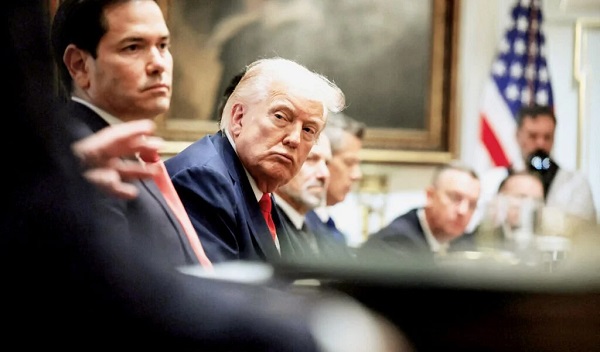
 Bruce Dowbiggin2 days ago
Bruce Dowbiggin2 days agoBrokeback President: We Can’t Quit You, Donald
-
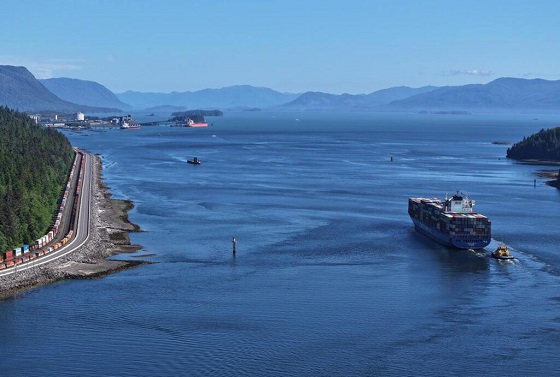
 Energy2 days ago
Energy2 days agoPrince Rupert as the Optimal Destination Port for an Alberta Crude Oil Pipeline –








